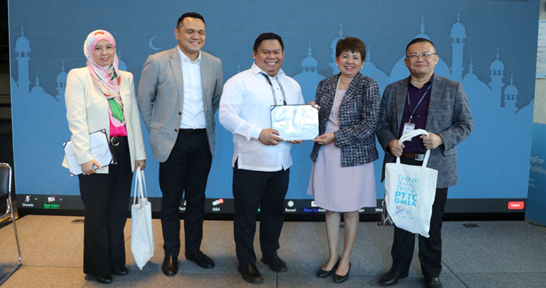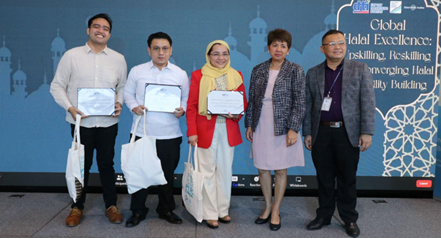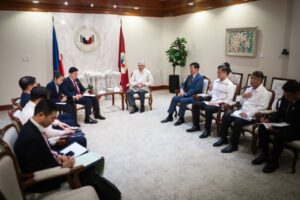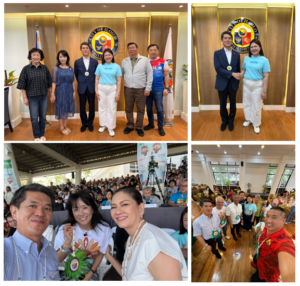
Highlighting the importance of Halal industry in the country’s economic growth, the Philippine Trade Training Center – Global MSME Academy conducted on April 18, 2023 a multi-stakeholder summit titled “Global Halal Excellence: Upskilling, Reskilling, and Converging Halal Capability Building.”
Attended by more than 200 participants both online and on-site, the event provided a platform for experts in the field to share best practices in halal production and certification.
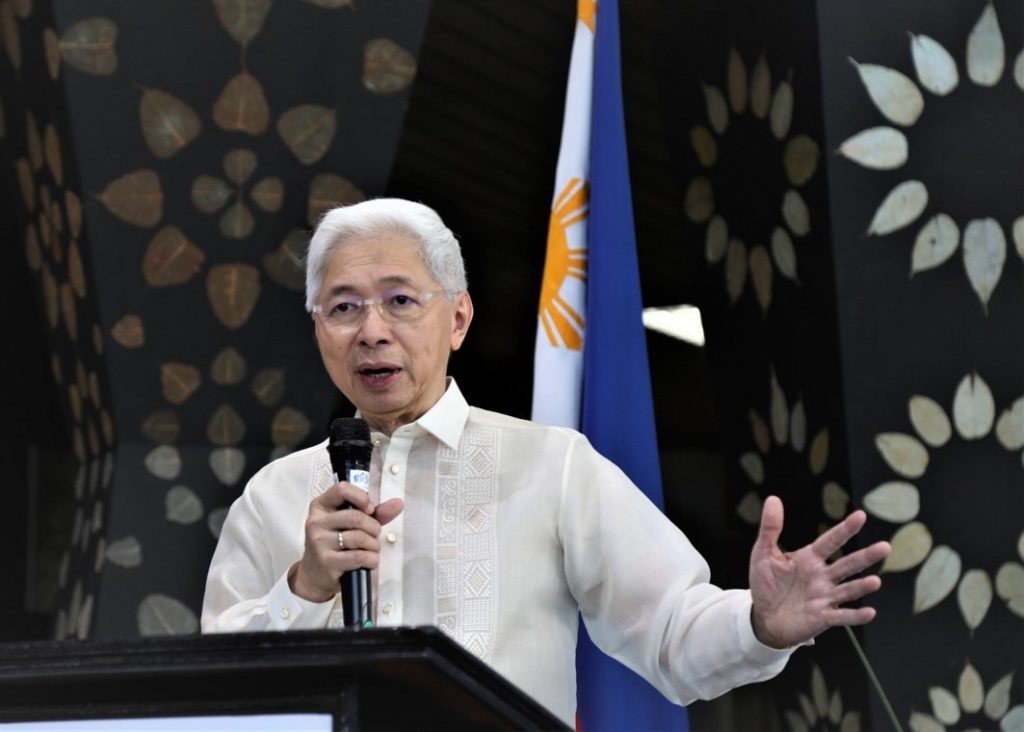
Department of Trade and Industry Secretary Alfredo Pascual said, “We see halal food as a sunrise industry and has a great potential to contribute to our goal of economic growth and expansion. We consider the growing Muslim population as a strong demand driver of the global halal economy. Estimated at 1.9 billion in 2020, Muslims reflect 25% of the world’s population and projected to grow up to 2 billion by 2030.”
As the demand for halal products and services continues to rise globally, PTTC-GMEA Executive Director Nelly Nita N. Dillera noted, “It is crucial for MSMEs (micro, small, and medium enterprises) and other stakeholders to stay ahead by upskilling, reskilling, and converging their capabilities to meet the growing needs of the halal market. This event serves as a platform to promote knowledge sharing, innovation, and best practices in the halal industry, empowering businesses to excel in the global halal ecosystem.”

“Through strategic capacity building initiatives, including training, research, and collaboration, the Philippine Trade Training Center – Global MSME Academy aims to enhance the competitiveness of the halal industry in the Philippines and contribute to the country’s participation in the global halal economy,” Executive Director Dillera added.
During the plenary sessions, Ms. Intan Zalani from the Malaysia External Trade Development Corporation shared insights on promoting halal in Malaysia industries like MIHAS, which is a premier international business convention specific for halal products and services. She emphasized that well-structured, inter-government operational bodies resulted in the formation of best practices and recommended for the Philippines to strengthen its own inter-government operational bodies, such as Export Marketing Bureau (EMB) with its Halal Section and PTTC-GMEA with its very own Halal Unit, and other agencies pursuant to RA 10817.
EMB Asst. Director Jhino Ilano asserted that there are untapped markets and existing ventures that Philippine MSMEs can capitalize on, such as pharmaceuticals, cosmetics, among others. He recommended that diversification of the halal products and services, which will happen by understanding the way of halal, would be beneficial for the industry as it breaks misconceptions on halal being limited to food only.
For his part, OIC Deputy Director General and Concurrent Group Manager of the Promotions and Public Relations Group from the Philippine Economic Zone Authority, Aleem Siddiqui M. Guiapal, presented opportunities in the existing economic zones in the Philippines and the PEZA mandate of promoting halal investments, creating employment for halal workers, and generating opportunities for halal importation and exportation. He invited MSMEs in the priority industries to partner with PEZA as part of their Investment Attraction Strategies, supported by President Ferdinand Marcos Jr.’s Executive Order #18 for Investment “Green Lanes.”
On another note, Head of the Halal Division of the Philippine Accreditation Bureau, Ma. Juanita P. Carpio, discussed the importance of halal certification in the Philippines for Muslims to identify acceptable products. However, according to her, it is difficult to impose halal standards and procedures on the manufacturing and food processing industry. She emphasized the importance of Mutual Recognition Arrangements (MRAs) in removing trade barriers, efficient enforcement and monitoring of trade, greater acceptance of products and services, and public confidence.
Meanwhile, Atty. Arifa Ala of the Bangko Sentral ng Pilipinas emphasized the need to reinforce the Islamic Financial Ecosystem, which will create an enabling environment for Islamic banks and Islamic banking windows to operate alongside conventional banks. She recommended promoting financial inclusion and stability to better meet the needs of financially underserved populations and promote a high quality of life for all Filipinos.
Representatives from the embassies of Malaysia, Indonesia, Brunei, United Arab Emirates, and Turkey also attended the event.
